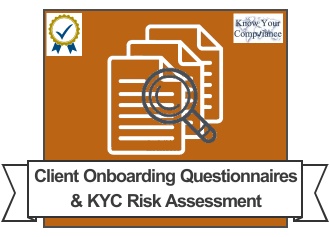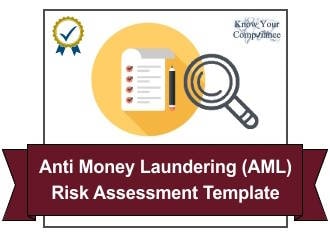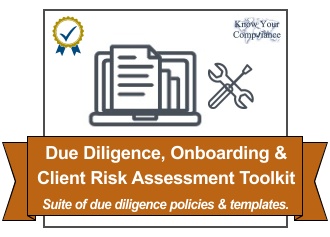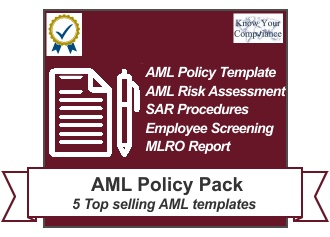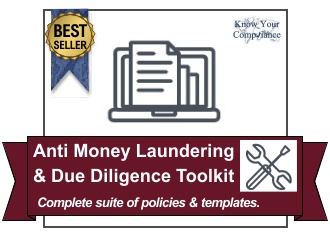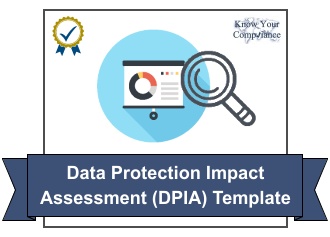How Do I Risk Assess New Clients?
 Whether it’s for standard due diligence or to comply with your anti-money laundering obligations, it is an essential business practice to risk assess new clients. It is during the onboarding of new clients that a company needs to learn as much as it can about the customer. This includes identifying and validating the reasons a client chooses your products and services.
Whether it’s for standard due diligence or to comply with your anti-money laundering obligations, it is an essential business practice to risk assess new clients. It is during the onboarding of new clients that a company needs to learn as much as it can about the customer. This includes identifying and validating the reasons a client chooses your products and services.
However, onboarding new clients is about more than standard checks and Know Your Customer controls. Assessing the risk a client poses to your business is imperative to protect your company, reputation, other clients and the wider economy.
What Information Should I Obtain During Client Onboarding?
The type of information that you collect from new clients is largely based on your business type, industry and the products or services that you offer. Most businesses will collect the standard information as a matter of course. This includes name, address, contact details and background searches. However, to enable you to effectively assess the client’s risk to your business, you need to obtain the right information.
The details collected from a new client will depend on your business, however, generally you should obtain: –
- Individual Clients (i.e. a person opening a bank account or applying for a mortgage) – current employment or occupation; proof of income; previous addresses; financial status and submit to a credit check.
- Corporate Clients (including partnerships and sole traders) – company trading style; trading status; financials; company size and scope; beneficial owners and enhanced background checks.
Onboarding a new client means obtaining current, relevant and adequate information alongside robust due diligence checks. However, once you have all the data about your new customer, how do you assess the risk they pose to your business?
Risk Assess New Clients
What do we mean when we say to risk assess a new client? There are numerous types of risk assessment with a business. Some are dependant on industry or regulations, others are legal requirements that apply to every business. When you are onboarding a new client, you need to understand who they are and what they do. There are also several reasons to risk assess your clients, not least to protect your own business.
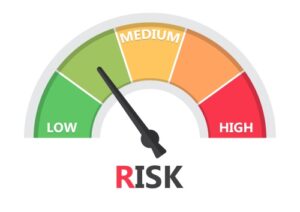 If you provide loans, mortgages or finance to individuals or corporate entities, you need to know that they can uphold their end of the agreement. A person with a poor credit history or irregular income pattern will naturally pose a higher risk in terms of lending. Some customers (often through no fault of their own), can make your company vulnerable to money laundering or terrorist financing.
If you provide loans, mortgages or finance to individuals or corporate entities, you need to know that they can uphold their end of the agreement. A person with a poor credit history or irregular income pattern will naturally pose a higher risk in terms of lending. Some customers (often through no fault of their own), can make your company vulnerable to money laundering or terrorist financing.
Types of Questions to Assess Risk
There will be different questions to assess risk dependant on whether the client is an individual or a corporate entity. General questions to ask yourself once you have obtained the relevant onboarding information are: –
- Is the client based in the UK?
- Is the client/director/owner/partner a high-net-worth individiual?
- Is the client/director/owner/partner or any of their close associates a politically exposed person (PEP)?
- Are any of the people with significant control in the company beneficial owners? (with a minimum 25% stake or voting right)
- Have you obtained evidence to verify the source of funds and wealth for the client or each director/owner/partner?
- Have you completed online adverse media checks on the client?
- Have you met with the client face-to-face or via a digital means of verifying their identity?
Templates for Client Risk Assessments
If you are looking for help assessing the risk of new clients or with client onboarding questionnaires, look no further! Know Your Compliance Limited specialise in due diligence and anti-money laundering policies, templates and tools for all business types.

